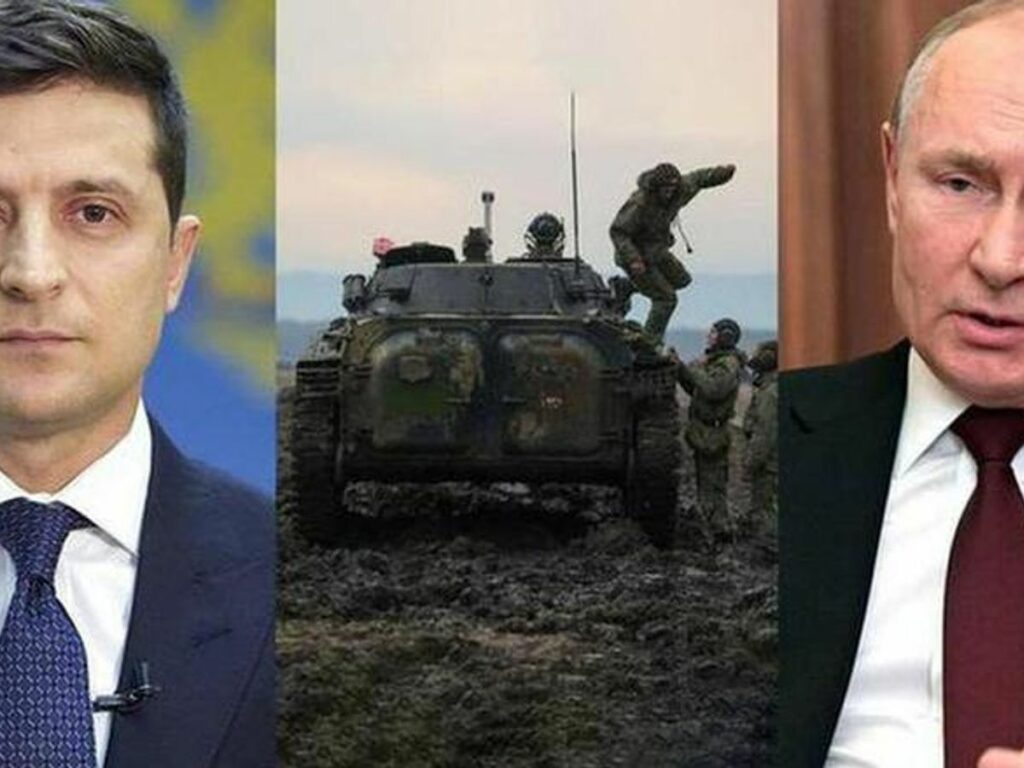Zim students still stuck in war-torn Ukraine as Russia encircles Kyiv

CUT off by Russian forces and surrounded by the sounds of battle, Adamu Rabiu sleeps in his clothes, shoes laced, ready to flee if he can.
The young Nigerian is among hundreds of students, many of them Africans, stuck in the eastern Ukrainian city of Sumy and desperate to escape.
“We don’t know how many days this situation will last,” the 23-year-old medical student told AFP by telephone. “It’s scary. There is no solution to get out. It is worse to stay.”
Buses and trains have stopped running. A handful of taxis brave the streets, but charge a fortune. The students pool their money to pay the fare when they go out for groceries.
For the moment, Rabiu has found spaghetti, onions and tomato sauce to cook in his dormitory at the Sumy State University. He now worries what will happen when the food runs out.
“If the war takes a year, we will be waiting here for a year,” he said. “I made up my mind. If there is a road, a bus, at taxi, a train – we are just going to move.”
At least in his situation there’s an advantage to being black, he said, unlike at the borders where Africans have reported sharp racial tensions.
“Russian soldiers are not attacking other foreigners. We are all black, that helps,” he said.

There were 16,000 African students in Ukraine before the conflict according to Kyiv’s ambassador in Pretoria, a legacy of the close ties between many countries on the continent and the nations of the former Soviet bloc.
Moses Kanhema, 28, left his apartment in the city to stay in the dorms, which he thinks are safer.
“We are sitting ducks as we are talking,” he said.
Kuziva, a second-year engineering student who declined to give a surname, said they hoped to find a way to Poland.
“In Sumy, every foreigner is still stuck, and we are all trying to find a way to get out of here,” the 23-year-old Zimbabwean said.
“There has been a lot of fighting,” he added. “We hope we can come out alive.”
“NOT OUR FIGHT”
Zimbabwe doesn’t have an embassy in Ukraine, but Kuziva said that his government had tried to help.
“But, like all the other nations, they can’t access their citizens here,” he said.
Kanhema was less forgiving.
“The Zimbabwean authorities have taken our passport information,” he said. “They call you, they keep saying: ‘Stay put, stay safe.’ They have taken no real initiative.
“We have nothing to do with this situation. We just came here to study. This is not our fight.”
Rachel Diyaolu, a 19-year-old medical student from Ireland, said that she was woken the day before by a thundering explosion.
“When we hear fighting, we don’t know if it is the Ukrainian or Russian forces,” she said. “It’s hard to pinpoint if the action is close or further away.”
If silence falls on the city for a few hours, the next explosions are all the more jarring.
With each siren, she goes down into a “bunker” – a basement with bare walls, old desks and some foam mattresses.
That might be safer, but there is no cell coverage. The plugs still work, so they can charge their phones but cannot receive any news.
Diyaolu regularly calls her family to let them know she is okay.
At first, the students knocked on each others’ doors to share any news they could find. Now they have set up a group on Telegram.
Diyaolu said that she is trying to stick to her regular routine as much as possible.
“I would feel bogged down if I didn’t,” she said. So far, she is sleeping through the night, though others struggle to get any rest.
Living through the crisis has brought the group together.
“There is a strong camaraderie,” she said. “We are all in the same boat.







